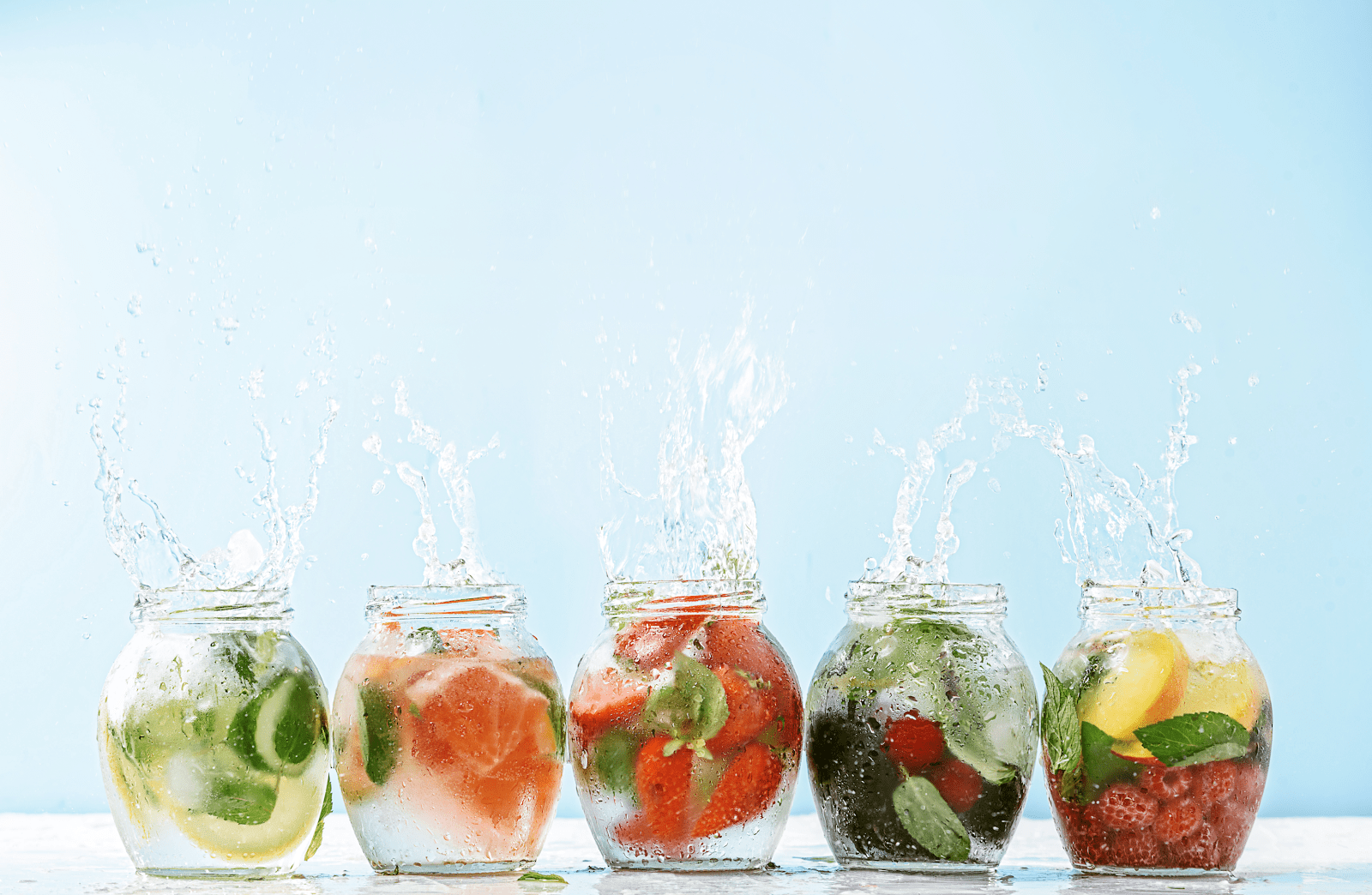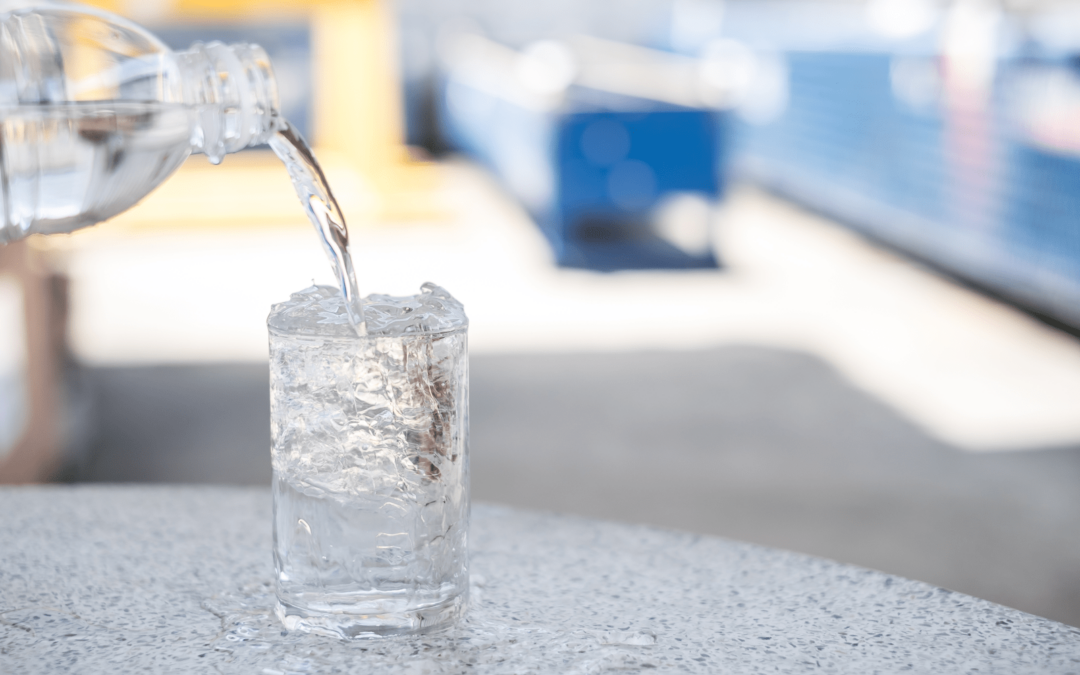What is Distillation?
There are different types of distillation, but Merriam-Webster defines distillation as the process of purifying a liquid by successive evaporation and condensation; a process of heating a liquid or solid until it sends off a vapor and then cooling the vapor until it becomes liquid.
What is Distilled Water?
Distillation can be used to purify water. It is a relatively complicated process and difficult to do at home without a water distillation machine. During this process, water is heated until it turns into steam and then that steam is recollected as water as it cools.
When boiling water with distillation, salt, minerals, and other harmful chemicals and impurities in the water are left behind in the initial vessel, and the result: clean, distilled water is collected in a new one. This method of purification is commonly used in pharmaceutical settings and industrial laboratories to ensure that purified water is used.
Is Distilled Water Safe To Drink?
Distillation can remove nearly all impurities from water including dissolved inorganics, bacteria, chemicals, and minerals from water, so some consider it a pure form of drinking water and when distillation is done properly, it is generally safe to drink distilled water.
However, according to The International Water Association (IWA) there are certain volatile and semi-volatile organic compounds that may not be removed by distillation. Organic compounds that boil at temperatures lower than the boiling point of water will be vaporized along with the water.
If these potentially harmful compounds are not removed prior to condensation, they will remain in the purified product. With this in mind, it’s probably not a great idea to distill your own water without first knowing its composition. You can schedule a free water test with Elders Pure Water to learn more about the characteristics of your home’s tap water.
According to the CDC (Centers for Disease Control), The Food and Drug Administration (FDA) regulates the safety of bottled water and bases its standards on the Environmental Protection Agency (EPA) standards for tap water. If these standards of tap water are met, then water is considered safe for most healthy individuals.
The subject of distilled water is heavily debated. Some believe since distilled water is also free from the vital minerals necessary for sustaining hydration and health that it’s not the best choice for drinking water. For example, calcium and magnesium found in some sources of drinking water are important for bone health.
While there is truth to this, healthy individuals who eat a balanced diet rich in vitamins, minerals, and electrolytes should have no issues drinking properly distilled water if they prefer it.

Benefits of Drinking Distilled Water
If done properly, distillation is an effective way to drastically reduce contaminants such as bacteria, viruses, and other microorganisms from water. It can also help eliminate heavy metals and other toxins.
Distilled water also has a neutral pH and does not have any acidic or alkaline properties. This makes it great for those who suffer from acid reflux or other stomach and digestive issues.
If unopened, it also has a long shelf life and doesn’t require refrigeration. Distilled water is great to store for emergency situations as part of a preparedness kit or for storing large quantities of water over extended periods. Just be sure to store it away from sunlight.
Drawbacks of Drinking Distilled Water
As mentioned above, distilled water lacks the beneficial minerals that are essential for proper hydration and overall health. Some argue that drinking demineralized water leaches minerals from the body over time, but there are few studies and little evidence to support this.
Many people also find that the lack of minerals gives distilled water a flat, unappealing taste.
With distillation being a complicated process that depends heavily on the perfect boiling temperature, the average person needs to purchase distilled water in the form of bottled water.
Bottled water is bad for the planet and can stack up on your wallet. You can read more about bottled water in our blog here.
There may be more affordable and sustainable options for getting purified water. You might consider distilled water compared to using a reverse osmosis system for the tap water in your home to determine which is best for you.
Is Distilled Water Right for You?
If you don’t mind the taste and you get enough minerals from a well-balanced diet, it’s fine to drink distilled water. It really comes down to your personal preference, your feelings toward single-use containers, and the reputation and standards of the company distilling the water.
Distilled water is nearly free from contaminants many try to avoid like fluoride and chlorine, which are often added to public water supplies, but it also lacks the beneficial minerals and electrolytes naturally present in other forms of water. So distilled water may not provide all the essential hydration benefits needed for good health.
It’s important to consider all factors when deciding whether distilled water is suitable for you.
Contact Elder's Pure Water Today
At Elder's Pure Water, we have been serving all of the Dallas, Fort Worth, and Westoplex areas for over 8 years and can help you find the perfect water filtration solution for your family and your home. Fill out the contact form to schedule a time to speak to one of our water specialists or give us a call at 817-631-4967!

